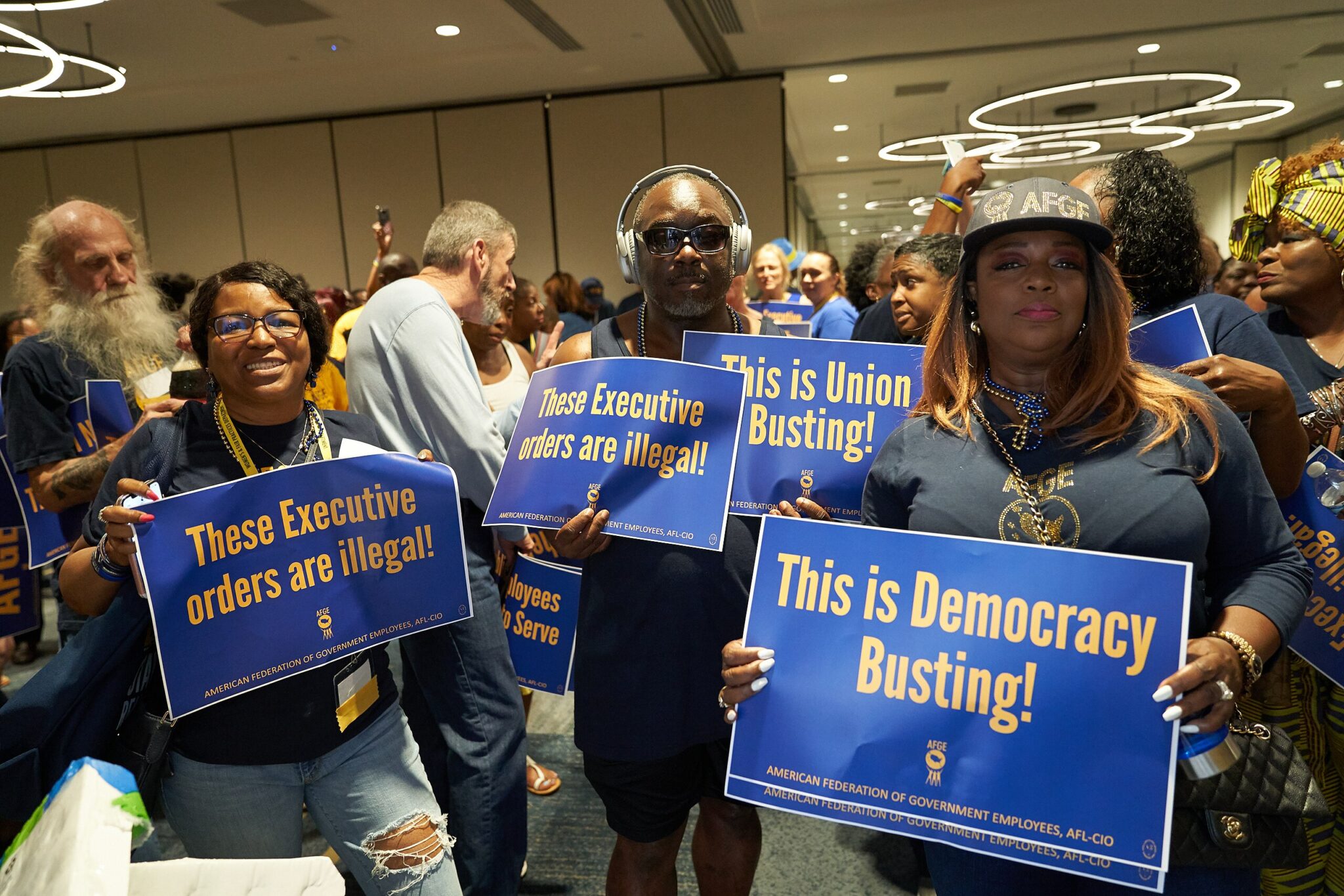
Otto Barenberg is a student at Harvard Law School and the Digital Director of OnLabor.
In today’s news and commentary, a federal judge partially blocks firings of probationary federal workers; the Trump Administration solicits data on federal employees’ union activities; and the AFT pressures Musk via Telsa shareholders.
In an order issued late last week, a California federal judge halted the Trump Administration’s mass firings of recently-hired federal workers. Siding with the union plaintiffs, Judge William Alsup excoriated the Officer of Personnel and Management for its probationary employee termination directive, writing that the firings are “unlawful, invalid, and must be stopped and rescinded.” The preliminary injunction applies to a subset of the 31,000 probationary federal workers fired over the past several weeks — specifically, employees of the National Park Service, Bureau of Land Management, Department of Veterans Affairs, Department of Defense, Small Business Administration, and Fish and Wild life Service. In a statement, Everett Kelley, the lead plaintiff and president of the American Federation of Government Employees, called the ruling an “important initial victory for patriotic Americans across this country who were illegally fired from their jobs by an agency [OPM] that had no authority to do so.”
The Office of Personnel and Management also issued a memo to all executive agencies requesting data on federal employees’ union work. A 2019 report from the first Trump Administration found that union activities amounted to only 0.05% of federal employee compensation. National Federation of Federal Employees President Randi Erwin warned in a statement that the Administration is “trying to lay the foundation to reduce or eliminate the use of official time within federal agencies.” The American Federation of Government Employees said the memo “stigmatizes something that is completely lawful and routine: federal employees’ elected representatives engaging in representation.”
Last week, America Federation of Teachers President Randi Weingarten urged major asset managers to reconsider their valuations of Tesla. Writing on behalf of 1.8 million members with an estimated $4 trillion in retirement assets, Weingarten opened a new line of attack in the labor movement’s fight against Musk’s anti-worker agenda and demolition of the federal government: leveraging union pension funds to pressure the largest shareholders of Musk’s companies. “Every worker deserves a safe a secure retirement,” Weingarten said in a post on Blusky. “Just this week we saw Tesla stock continue to sink faster than a Cybertruck in quicksand. So we’re asking asset managers to honestly look at their investments in Tesla.” Tesla’s share price has fallen 28% over the past month due to greater competition, cratering demand, and “the damage that Musk has done to Tesla’s brand.”






Daily News & Commentary
Start your day with our roundup of the latest labor developments. See all
March 3
In today’s news and commentary, Texas dismantles their contracting program for minorities, NextEra settles an ERISA lawsuit, and Chipotle beats an age discrimination suit. Texas Acting Comptroller Kelly Hancock is being sued in state court for allegedly unlawfully dismantling the Historically Underutilized Business (HUB) program, a 1990s initiative signed by former Governor George W. Bush […]
March 2
Block lays off over 4,000 workers; H-1B fee data is revealed.
March 1
The NLRB officially rescinds the Biden-era standard for determining joint-employer status; the DOL proposes a rule that would rescind the Biden-era standard for determining independent contractor status; and Walmart pays $100 million for deceiving delivery drivers regarding wages and tips.
February 27
The Ninth Circuit allows Trump to dismantle certain government unions based on national security concerns; and the DOL set to focus enforcement on firms with “outsized market power.”
February 26
Workplace AI regulations proposed in Michigan; en banc D.C. Circuit hears oral argument in CFPB case; white police officers sue Philadelphia over DEI policy.
February 25
OSHA workplace inspections significantly drop in 2025; the Court denies a petition for certiorari to review a Minnesota law banning mandatory anti-union meetings at work; and the Court declines two petitions to determine whether Air Force service members should receive backpay as a result of religious challenges to the now-revoked COVID-19 vaccine mandate.